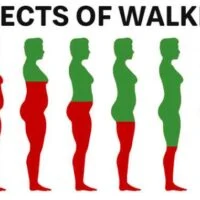Dementia is a general term for a decline in mental ability severe enough to interfere with daily life. It is estimated that 46.8 million people worldwide are living with dementia and this figure is projected to triple by 2050. Unfortunately, dementia prevention is difficult and there is no known cure. With this in mind, researchers have been exploring ways to identify early signs of dementia in order to slow its progression or at least provide support for those dealing with it. A recent study found that changes in walking speed over time may be a sign of early onset dementia.

What the Study Revealed
The study, which was published in the journal Neurology, was conducted by researchers at the University of Pittsburgh and the University of Pennsylvania. It found that walking speed was a significant predictor of cognitive decline in older adults. The study followed 3,125 people aged 65 and older for an average of 6.6 years and found that those who walked more slowly than their peers were more likely to develop dementia.
The researchers found that people who walked at least 0.1 meter per second slower than their peers had a 45% higher risk of developing dementia. They also found that those who had a decrease in walking speed of 0.1 meter per second or more over a two-year period had a 70% higher risk of developing dementia.
The study also found that older adults who used a walker or cane had a higher risk of developing dementia than those who did not. This was true even after controlling for other factors such as age, sex, race and education.
What Causes Changes in Walking Speed?
Changes in walking speed can be caused by a variety of factors, including age-related changes in muscle strength, coordination, and balance. It can also be caused by neurological diseases such as Parkinson’s or Alzheimer’s disease.
In addition, changes in walking speed can be caused by medications, medical conditions such as diabetes or obesity, and lifestyle factors such as smoking and low levels of physical activity. Changes in walking speed can also be caused by mental health issues such as depression or anxiety.
Latest Studies on Dementia Prevention
Recent studies have suggested that lifestyle modifications such as regular exercise, a healthy diet, cognitive stimulation, social engagement and stress management can help reduce the risk of dementia.
Exercise has been found to be especially beneficial in reducing the risk of dementia. Exercise increases circulation of blood and oxygen to the brain, which can help reduce the risk of cognitive decline. It also increases the production of new brain cells and strengthens existing brain cells.
In addition, a healthy diet is essential for reducing the risk of dementia. A diet high in fruits, vegetables, whole grains, healthy fats, and low in processed and sugary foods can help reduce the risk of dementia.
Cognitive stimulation is also important for reducing the risk of dementia. Activities such as reading, playing cards, doing puzzles, and engaging in conversations can help maintain cognitive function.
Finally, social engagement and stress management are also important for reducing the risk of dementia. Staying socially engaged and managing stress through activities such as meditation, yoga, and Tai Chi can help reduce the risk of dementia.
Symptoms of Dementia
Dementia is a progressive condition, so signs and symptoms may develop slowly over time. Some of the most common symptoms of dementia include:
- Memory loss
- Difficulty with problem-solving or planning
- Confusion and difficulty with communication
- Challenges with coordination and motor functions
- Difficulty with visual perception
- Mood swings and changes in personality
Dementia is a serious condition with no known cure. While it may not be possible to prevent dementia, understanding the signs and symptoms of the condition can help to slow its progression. This includes paying attention to changes in walking speed, which may be an early indicator of dementia. In addition, lifestyle modifications such as regular exercise, a healthy diet, cognitive stimulation, social engagement, and stress management can help reduce the risk of dementia.



